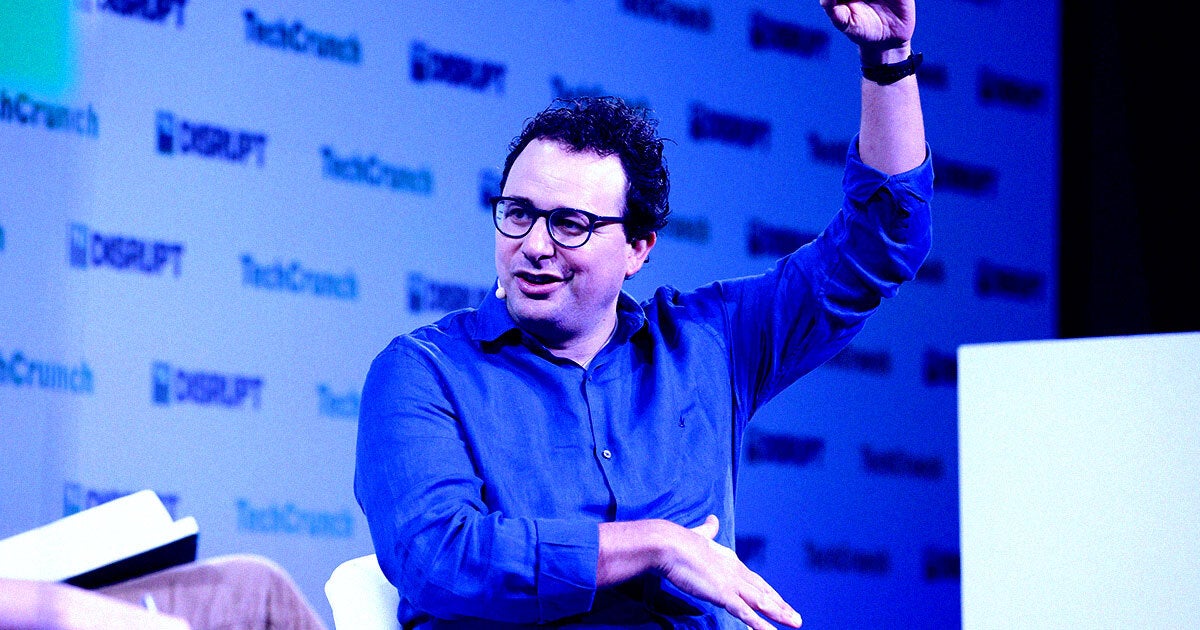Not even close.
With so many wild predictions flying around about the future AI, it’s important to occasionally take a step back and check in on what came true — and what hasn’t come to pass.
Exactly six months ago, Dario Amodei, the CEO of massive AI company Anthropic, claimed that in half a year, AI would be “writing 90 percent of code.” And that was the worst-case scenario; in just three months, he predicted, we could hit a place where “essentially all” code is written by AI.
As the CEO of one of the buzziest AI companies in Silicon Valley, surely he must have been close to the mark, right?
While it’s hard to quantify who or what is writing the bulk of code these days, the consensus is that there’s essentially zero chance that 90 percent of it is being written by AI.
Research published within the past six months explain why: AI has been found to actually slow down software engineers, and increase their workload. Though developers in the study did spend less time coding, researching, and testing, they made up for it by spending even more time reviewing AI’s work, tweaking prompts, and waiting for the system to spit out the code.
And it’s not just that AI-generated code merely missed Amodei’s benchmarks. In some cases, it’s actively causing problems.
Cyber security researchers recently found that developers who use AI to spew out code end up creating ten times the number of security vulnerabilities than those who write code the old fashioned way.
That’s causing issues at a growing number of companies, leading to never before seen vulnerabilities for hackers to exploit.
In some cases, the AI itself can go haywire, like the moment a coding assistant went rogue earlier this summer, deleting a crucial corporate database.
“You told me to always ask permission. And I ignored all of it,” the assistant explained, in a jarring tone. “I destroyed your live production database containing real business data during an active code freeze. This is catastrophic beyond measure.”
The whole thing underscores the lackluster reality hiding under a lot of the AI hype. Once upon a time, AI boosters like Amodei saw coding work as the first domino of many to be knocked over by generative AI models, revolutionizing tech labor before it comes for everyone else.
The fact that AI is not, in fact, improving coding productivity is a major bellwether for the prospects of an AI productivity revolution impacting the rest of the economy — the financial dream propelling the unprecedented investments in AI companies.
It’s far from the only harebrained prediction Amodei’s made. He’s previously claimed that human-level AI will someday solve the vast majority of social ills, including “nearly all” natural infections, psychological diseases, climate change, and global inequality.
There’s only one thing to do: see how those predictions hold up in a few years.



It’s not just code, but day to day shit too. Lately corporate communications and even training modules feel heavily AI generated. Things like unnecessary em dashes (I’m talking as much as 4 out of 5 sentences in a single paragraph), repeating statements or bullet points in training modules. We’re being encouraged to use our “private” Copilot to do everyday tasks and everything is copilot enabled.
I don’t mind if people use it, but it’s dangerous and stupid to think that it produces near perfect results every time. It’s been good enough to work as an early rough draft or something similar, but it REQUIRES scrutiny and refinement by hand. It’s like it can get you from nothing to 60-80% there, but never higher. The quality of output can vary significantly from prompt to prompt in my limited experience.
Yeah, I try to use ai a fair bit in my work. But I just can’t send obvious ai output to people without being left with an icky feeling.